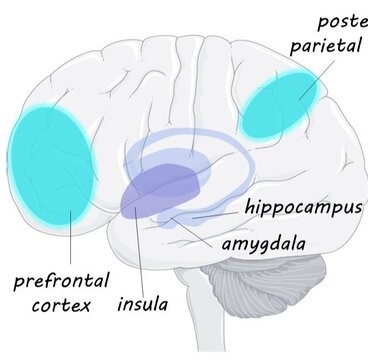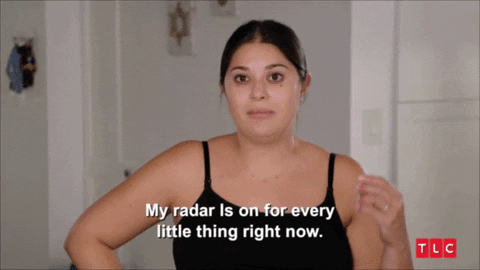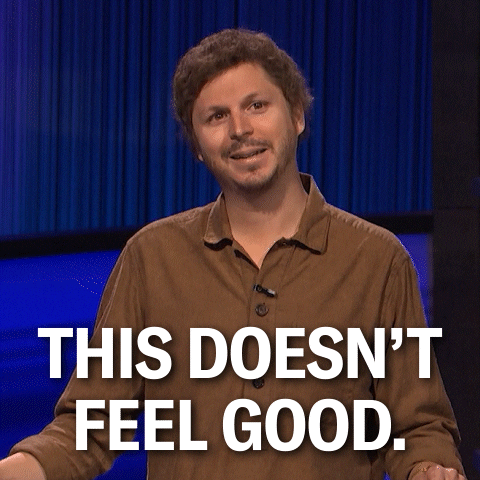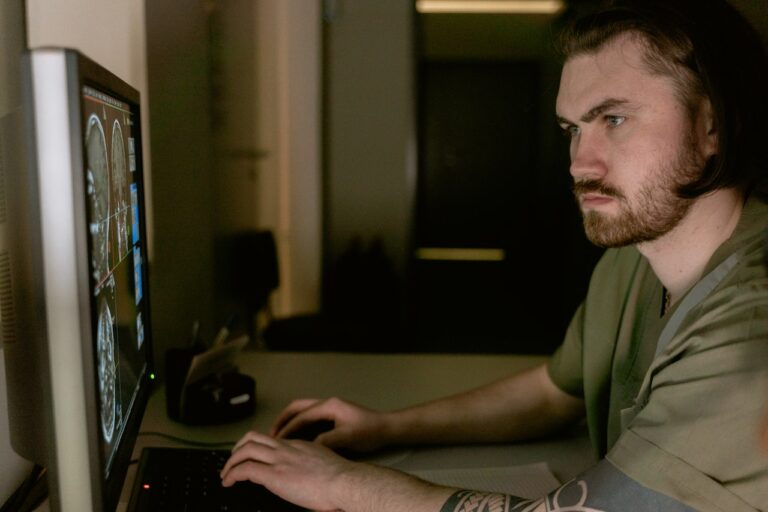Disclaimer: My content is NOT a substitute for professional advice, diagnosis, or treatment. When in doubt, ask a therapist!
“Do people with social anxiety have a different brain!?”
In the depths of my frustration, I couldn’t help but wonder.
This year, I started going a lot deeper into the neuroscience of social anxiety. What I’ve learned so far has been incredibly enlightening… and even validating.
For one, seeing it from the perspective of neuroscience helps me be more compassionate towards myself. In the face of anxiety, my brain is just trying to protect me — even if it overreacts!
What parts of the brain are affected by social anxiety?
While there are other parts of the brain involved — the brain operates in networks and processes, not unlike a computer — here are the three parts commonly associated with social anxiety:
- The amygdala
- The insula
- The prefrontal cortex

And let’s say that you walk into a party… and you don’t know anyone. Some of them start staring at you. Who’s this guy/gal?
Here’s how your brain reacts in the moment…
First, the amygdala goes into overdrive
Amygdala is the part of your brain that’s responsible for your fear response. If a tiger pounces at you, it gets your body ready for a Usain-level sprint.
In the CBT For Anxiety course I took with her, Elizabeth DuPont Spencer, LCSW, explained how the amygdala gets us into a “fight or flight” state:
“We store other memories about things that have been dangerous and the amygdala is designed to compare it to that. The amygdala then sends a quick message to the hypothalamus: “Watch out! This is new, this is dangerous. Alert, alert!” The hypothalamus floods our body with hormones. Now we’ve got the adrenaline kicking in, our heart is beating and we are sweating.”
So, it’s really important that you have an amygdala…#removalnotrecommended
But here’s the problem: the amygdala can go haywire. According to a meta-analysis, people with social anxiety disorder have a hyperactive amygdala and insula (more on the insula in a bit).
This is one big reason socially anxious people are a lot more sensitive to negative social stimuli, whether it’s disapproval, criticism, or rejection.

….And the insula joins the amygdala
The insula, which helps you be aware of your emotions and sensations, also tends to be overactivated when you’re socially anxious, according to research.
Why is this a problem? When your insula is overly active, you’re more alert to your bodily sensations, especially the ones that are a result of social anxiety, say sweaty palms or a racing heart.
And because you’re more alert… you feel even more discomfort and anxiety, according to a study.

The prefrontal cortex fails to rein in the amygdala and insula
The prefrontal cortex is the part of the brain that regulates our emotions and behavior. But what role does it play in social anxiety?
Let’s go back to the party example. Your amygdala shakes up your prefrontal cortex and screams “Danger!!! These people are judging you!”
Rather than stopping the anxiety from escalating further, here’s what the prefrontal cortex does when it’s overwhelmed by social anxiety:
It works even harder than usual
Researchers of a meta-analysis found that the prefrontal cortex is more active in social anxiety disorder, yet it seems to be unable to regulate the anxiety.
It triggers the amygdala even more.
Elizabeth explained:
“[Our prefrontal cortex] could say to the amygdala what it typically says when we are in a panic situation, which is, “oh, no! This is terrible”… that feeds into what the amygdala is doing as well.”
Instead of holding the leashes on the amygdala, the prefrontal cortex freaks out together with the amygdala…

Knowing how your brain functions during social anxiety, what do you do differently?
Strengthen your prefrontal cortex
To re-regulate your emotions, try cognitive restructuring, which helps you see your thoughts more objectively.
A study shows that cognitive restructuring can help alleviate anxiety, specifically when it comes to an overactive prefrontal cortex. In other words, it trains the prefrontal cortex to calm the rampaging amygdala down.
Get a professional “brain trainer”
In other words, try therapy 🙂 It helps you rewire your brain without medication.
In a study, participants went through 12 weeks of CBT, and brain scans showed that their insula and prefrontal areas were less active post-treatment.
Learn more about the effectiveness of different therapy approaches for social anxiety:
- Cognitive behavior therapy (CBT) for social anxiety
- Acceptance and Commitment Therapy (ACT) for social anxiety
- 31 social anxiety exposure challenges
Give your mind a dose of… mindfulness
By practicing mindfulness, you increase your acceptance of anxiety, which can help soothe the brain. I might be biased since I’m a practitioner, but here’s what the research says:
- A study compared the effects of group CBT and Mindfulness Stress Based Reduction (MBSR) and found that both were effective in helping participants regulate their emotions via restructuring or acceptance.
- A small-scale study showed that mindfulness — as simple as shifting your attention to your breath — helped reduce amygdala activity.
Learn more about mindfulness or meditation here:
- Does mindfulness help social anxiety? Yes (here’s how)
- What’s the best meditation for social anxiety?
Now, all this brain talk does beg the question…
Does medication work for social anxiety?
Yes, with a BUT.
According to a meta-analysis, SSRIs and SNRIs — antidepressants that increase mood-regulating chemicals in your brain — are the most effective drug treatment for social anxiety. Here’s a list of them:
- Clonazepam
- Escitalopram
- Fluoxetine
- Fluvoxamine
- Moclobemide
- Paroxetine
- Phenelzine
- Sertraline
- Venlafaxine
While drug treatment is proven to be effective, the researchers issued a note of caution:
“…most people who respond to a SSRI will relapse within a few months if the drug is discontinued after acute treatment, and about 25% of people who respond to SSRI treatment and continue drug treatment will relapse within 6 months. By contrast, the effects of psychological interventions are generally well maintained at follow-up”
If you’re considering this option, definitely chat with a licensed mental health professional first, so that you can make the most informed decision possible!
I’d also recommend checking out the following video by Dr. Tynessa Frank, a clinical psychologist who specializes in social anxiety:
Related articles

